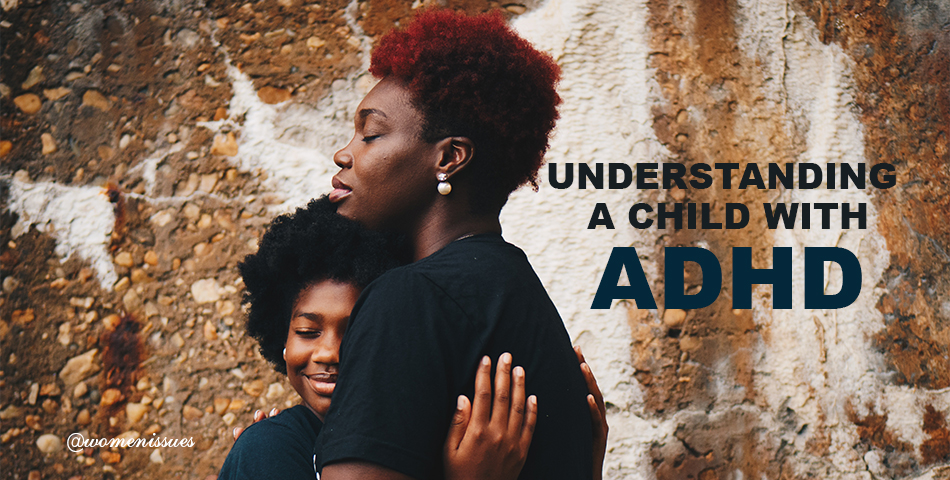What is ADHD?
ADHD stands for Attention Deficit Hyperactivity Disorder. It is made up of three core behaviors which are inattentiveness, impulsiveness and over activeness. It refers to a troublesome cluster of behaviors that cause a child to underachieve academically and to behave poorly despite having a good intellect. This simply means these kids are not necessarily stupid on the contrary they can be very intelligent but that would usually never show academically. It is largely a biological disorder which is hereditary and long-term study have confirmed it to be chronic. ADHD is mainly characterized by attention problems or hyperactivity or combination of the two. I have seen in our community it is loosely associated with any child with very active behavior, we hear most parents often bragging about their kid being too active, usually at their worst in pre-school years and often never realize attention problem of it. But very important to understand it does not necessarily mean all overactive kids suffer from ADHD.
Study has shown it affects more boys than girls and it can be inherited from either a parent or a very close relative. Mostly diagnosed in the first year of school where they have to learn in a more structured situation and attention is a necessity compared to preschool level, in lower levels is just dismissed as active behavior. Overactivity is rarely a troublesome behavior in itself but the main problem is the inattention poor impulse control, insatiability and poor co-ordination or social skills. Psychologists presume children with ADHD outgrow it as the brain develops into adulthood but 60% to 80%still takes it to adulthood. Parenting a child with ADHD can be very stressful and can impact the family as well, whether the child is diagnosed or not. Because of its strong biological hereditary basis, the expression of ADHD behaviors is still powerfully affected by the child’s family.
When children remain undiagnosed they can be seen as troublesome underachieving and very hard to deal with by both parents and teachers at school. Boys are more disruptive and show aggression compared to girls so there are easily diagnosed and more often referred. Parents with children suffering from this disorder run a risk of having more kids with the same problem which can be displayed differently in boys and girls. Parents need to grow awareness and better knowledge of the problem because their psychological integrity is crucial in treating the disorder. These children have a very definite impact on their families and in turn parents or other family members will also have an effect on them.
UNDERSTANDING A CHILD WITH ADHD
ADHD/ADD Problems
Hyperactivity (ADHD)
*Interruptive and intrudes on others in the class
*In crèche level runs around and climbs above excessively
*Fidgets with hands or feet
*Never remain seated in a situation where it’s needed
*Impulsivity
*Always in motion
*Talks excessively
*Difficulty awaiting turns in groups
Inattention (ADD)
*Never seem to listen when spoken to
*Difficulty in following a routine
*Easy loss of concentration
*Easily distracted
*Dislikes and often avoids activities that require sustained attention
*Never does the daily activity as required by often leaving tasks incomplete
*Makes careless mistakes
*Forgets instructions
How ADHD/ADD impact family environment
Family interactions with these children can bring a lot of negativity and a lot of stress amongst both parents and their siblings. It can impact on bringing conflicts in a marital relationship or individually affect father-child relationship differently from the mother-child relationship. Mothers and siblings can be more affected due to a high number of single parenting of mothers or other reason being mothers spent more time with kids even in a family environment more than fathers do. Research indicates that because fathers interact less with less orders then these children are more inclined to carry out their orders. Fathers who are more aggressive risk evoking more counter aggression in the ADHD child.
The mother-child relationship is more complicated because mothers give too many orders and interact more frequently. Mothers are more involved with everyday tasks including school work and their demands can be very confusing to the child. Their child inability to follow orders is often very hard which leads to impatience, nagging, difficulty to remain positive and eventually verbal aggression. At a certain stage, a mother stops making demands in a way of giving up and either feeling guilty of poor parenting or having an uncontrollable good for nothing child. How these children evoke different responses towards the mother and father can cause conflict in marriage as the child‘s behavior will usually be blamed on the mother than the child more especially if undiagnosed. This does not necessarily imply anything on the parenting abilities.
ADHD children need more attention and can get more privileges than their siblings which leads to those siblings feeling like they are left to get away with bad behavior. Their disruptive behavior towards their sibling can bring more negative and stress in the family. It is essential for parents to balance the attention with regard to all the children which can be a challenge. ADHD has to be taken as a family problem and that will require effective counseling to benefit the family. Counseling will help with more understanding of the nature and treatment of ADHD.
The Do’s and Don’ts
#Encourage out loud thinking
#Calm yourself when giving instructions
#Communicate clearly
#Breakdown tasks so to be manageable
#Limit distraction
#Control diet- no artificial colourants or flavourants in diet, sweets, and colas
#Don’t lash out
#Try not to be negative
Ideal Treatment
“Behavioral Therapy – provides restructuring and behavior management. Learning to adjust living environment
“Medication- stimulant drugs are used but do not cure ADHD. They help in making the best of their abilities to focus and reflect. I have seen how drugs can make the child withdrawn and over-focused and that usually scares parents thinking it’s turning them into some kind of zombies. It is encouraged not to stop drugs because if they are effective then these children may also be socially in tune and better behaved
Most schools provide clinical psychologists which can help with child assessment, therefore, making recommendations to parents, type of treatment needed and or referrals to get help from a relevant place.
Conclusion
Take your child behaviour into serious account, this syndrome needs to be taken seriously. Managing and maintaining it will bring better positive results with less stress, positive response and happier environment. Remember not to self-diagnose, seek help from the right authority to diagnose and prescribe. either child neurologists, specialist paediatricians or psychologists. ADHD children can come across troublesome but they be very successful in life.
**NOT ALL THAT GLITTERS IS GOLD**



No Comment